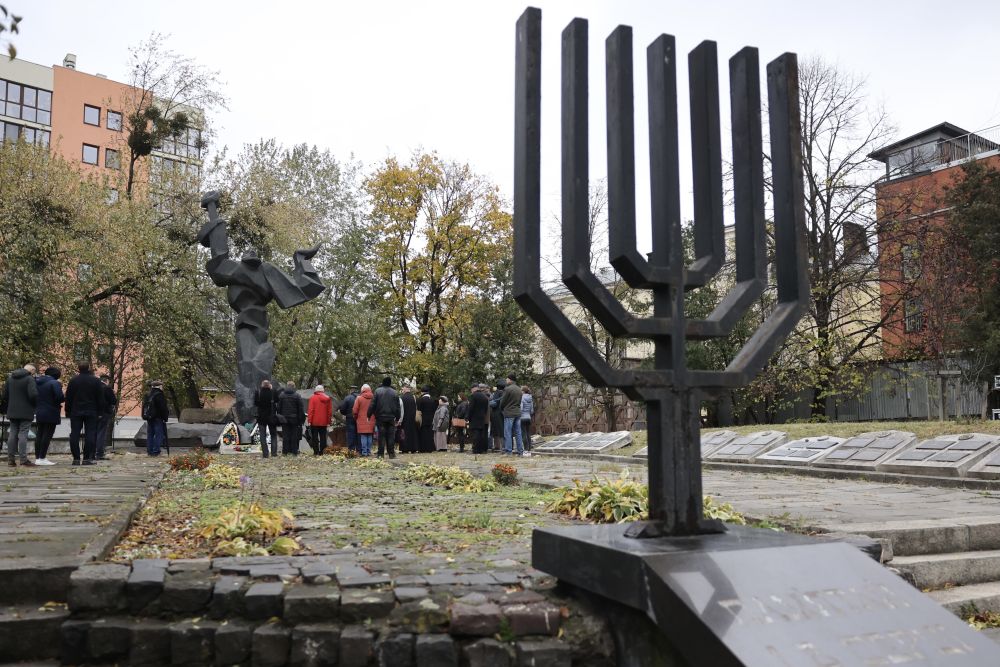Today, Lviv commemorated the 80th anniversary of the liquidation of the Lviv ghetto and Yaniv concentration camp. The head of the city Andriy Sadovy, representatives of Jewish organizations, the public and the clergy lit lamps and laid flowers at the monument to the victims of the Lviv ghetto, and prayed a memorial prayer together.
“Today, being in a time of war, we have a deeper understanding of this tragedy that the Jewish people experienced. Today, the Ukrainian people stand at the forefront and defend the right of the free countries of the world to live, develop, and be decent people. That is why we are today together with the Jewish people, we are today with all people who have the core of will to be worthy. And so it will always be. And when you take this step towards freedom, towards freedom, God always helps you, despite all the trials,” said Andrii Sadovy, the mayor of Lviv.
Today, flowers were also laid at the memorial stone on the site of the former Yaniv concentration camp. And later, a concert-prayer by the SHTRUDL-Band Jewish song ensemble began at the Memorial Museum of Totalitarian Regimes “Territory of Terror”.
The event was organized by the Jewish religious community of progressive Judaism “Teiva”, the All-Ukrainian Jewish Charitable Foundation “Hesed-Aryeh” and the Memorial Museum “Territory of Terror”.
certificate
According to researchers, the Lviv ghetto was the largest in the USSR and the third largest in Eastern Europe. During the two years of its existence, more than 136,000 Jews passed through the ghetto. Life in the ghetto was difficult: along with terrorist actions and pogroms by the occupation authorities, there was hunger and unsanitary conditions. The ghetto lacked water and food, medical care, and housing. Official supply norms in the winter of 1941-1942 per adult were: 700 gr. bread per week, 400 gr. flour and 100 gr. of sugar per month.
The Germans established total control in the ghetto. Jews could not move freely through the city, use property, public transport, or visit public places. They had the right to leave the precinct only when they went to Yaniv concentration camp and other places for forced labor. When the Jews were tortured and shot, in the Yanov concentration camp, an orchestra of prisoners performed the melody “Tango of Death”.
According to researchers, more than 250,000 people died in the Lviv ghetto and Yaniv concentration camp, although it is very difficult to establish the exact figure.

